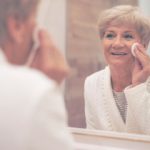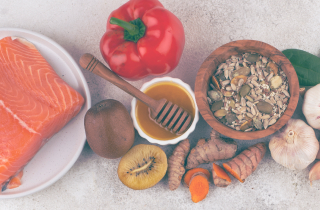Top Superfoods for Managing Diabetes: Nutrient-Rich Essentials for Your Diabetic Diet in New York
Managing diabetes can be challenging, but maintaining a balanced diet is one of the most effective ways to control blood sugar levels and support overall health. By including nutrient-dense superfoods in your diabetic meal plan, you can significantly enhance your well-being and improve your condition.These nutrient-rich foods are packed with essential vitamins and minerals that help regulate blood sugar, reduce inflammation, and offer numerous health benefits. Here’s a closer look at some of the best superfoods for diabetes management and how they can be seamlessly integrated into a diabetes-friendly diet, especially for seniors in New York.
An In-Depth Guide to Diabetes Superfoods
Diabetes superfoods are powerhouse foods rich in nutrients that naturally help stabilize blood sugar levels and enhance insulin sensitivity. Packed with fiber, healthy fats, and antioxidants, these superfoods are ideal for managing diabetes, especially for individuals with type 2 diabetes. Beyond stabilizing blood sugar levels, these superfoods boost energy, reduce the risk of complications, and contribute to improved cardiovascular health.

Top Superfoods for Effective Diabetes Management
Here are a few must-have superfoods to consider incorporating into your diabetic meal plan:
Leafy Greens
Spinach, kale, and Swiss chard are fantastic additions to a diabetic diet. They are low in calories and carbohydrates but rich in essential nutrients like magnesium, which is vital for maintaining healthy blood sugar levels.The high fiber content in these greens helps prevent blood sugar spikes, making them a powerful superfood for managing diabetes effectively.
Berries
Blueberries, strawberries, and raspberries are perfect for diabetics thanks to their high levels of antioxidants and fiber. The fiber helps slow the absorption of sugar, preventing rapid blood sugar spikes and keeping levels more stable. These versatile superfoods can easily be added to your breakfast or snacks, providing a delicious and diabetes-friendly option to support your health.
Fatty Fish
Salmon, mackerel, and sardines are rich in omega-3 fatty acids, which are well-known for their anti-inflammatory effects and significant heart health benefits. Given that diabetics are at a greater risk of cardiovascular problems, adding fatty fish to their diet can help reduce this risk and promote overall well-being.
Nuts and Seeds
Almonds, walnuts, chia seeds, and flaxseeds are packed with healthy fats, fiber, and protein, making them excellent options for stabilizing blood sugar levels.In addition to regulating glucose levels, these superfoods help you feel fuller for longer, reducing the urge to snack on unhealthy options.
Legumes
Beans, lentils, and chickpeas are rich in fiber and protein, while also being low on the glycemic index. These foods have a minimal impact on blood sugar levels and are particularly helpful for weight management and heart health, making them a great choice for individuals with type 2 diabetes.
Whole Grains
Brown rice, quinoa, and oats provide complex carbohydrates that deliver long-lasting energy without triggering blood sugar spikes. Their high fiber content makes them a valuable component of a balanced diabetic diet.
Citrus Fruits
Oranges, lemons, and grapefruits are packed with vitamin C and fiber, which aid in regulating blood sugar levels. Their natural sweetness helps curb cravings, providing a healthy alternative to processed sugars.
Avocados
Rich in healthy fats and fiber, avocados reduce inflammation and improve insulin sensitivity. This nutrient-dense superfood is a fantastic addition to a diabetic diet, offering a variety of health benefits.
Diabetic Meal Plan for Seniors in New York: Integrating Superfoods for Maximum Health Benefits
Seniors with diabetes often face unique dietary challenges, including managing multiple health conditions, reduced appetite, and a slower metabolism. A well-balanced diabetic menu for seniors should focus on nutrient-dense, whole foods that are both easy to prepare and gentle on digestion. Incorporating superfoods such as leafy greens, fatty fish, and whole grains ensures seniors receive essential nutrients while avoiding excess calories and carbohydrates.
For instance, start your morning with a bowl of oatmeal topped with fresh berries, followed by a lunch of leafy green salad with avocado and grilled salmon. End the day with a hearty lentil soup paired with whole grain bread for dinner. This menu offers a well-rounded, nutrient-rich, and diabetes-friendly meal plan, perfect for supporting overall health and blood sugar management.
The Yes-No Food Guide for Diabetics: What to Eat and What to Avoid for Improved Blood Sugar Management
- Simplify your food choices with this straightforward “yes-no” list for diabetics:
- Yes: Leafy greens, fatty fish, berries, nuts, seeds, whole grains, legumes, avocados, and citrus fruits.
- No: Refined sugars, processed foods, white bread, sugary drinks, and trans fats.
By focusing on the “yes” foods and avoiding the “no” options, individuals with diabetes can effectively manage their blood sugar levels while still enjoying a varied and flavorful diet.
Conclusion: Superfoods as the Foundation of a Diabetes-Friendly Diet
Superfoods are essential for maintaining stable blood sugar levels, boosting heart health, and enhancing overall wellness in individuals with diabetes. By incorporating these nutrient-packed choices into daily meals, diabetes management becomes more straightforward, particularly for seniors in New York who benefit from easily digestible, nutrient-dense foods. At Angel Care Inc. Home Care Agency NY, we encourage following a simple yes-no food list and focusing on whole, unprocessed foods to make managing a balanced and satisfying diabetic diet easier and more effective.

Across New York and elsewhere, bathroom falls are a primary source of injury for the elderly, significantly endangering their health and diminishing their quality of life. Recognizing and addressing these risks through effective preventative measures is crucial. This article explores the common causes of bathroom falls and outlines established strategies to boost safety. Main Reasons for Bathroom Falls Bathrooms pose significant risks for the elderly with their slippery floors and tight spaces. Typical incidents involve slipping when getting into or out of the bathtub, accidents on wet floors, or stability problems when moving from sitting to standing or vice versa. Additional hazards like poor lighting and the lack of support features further increase the likelihood of falls. Critical Safety Measures Install Supportive Grab Bars: Carefully positioning grab bars near the toilet, bathtub, and shower can greatly enhance safety by offering firm support for moving around the bathroom. Use Non-Slip Mats: Placing non-slip mats inside and immediately outside the shower or bathtub is crucial for preventing slips, a common culprit behind bathroom falls. Improve Lighting Solutions: Enhancing visibility with better lighting can significantly lower the risk of tripping and slipping. Ensure light switches are easily reachable, or opt for installing automated, motion-sensor lighting for optimal illumination. Optimize Bathroom Layout: Keep the bathroom clear and accessible by removing clutter and ensuring essential items are easily accessible. Consider modifications like walk-in showers or bath lifts to enhance safety. Conduct Regular Maintenance: Regularly inspect and maintain bathroom fixtures such as tiles, rugs, and support rails to ensure they are securely attached and fully operational. Handling Falls Effectively Responding to Falls: Understanding how to help an injured elderly person after a fall is vital to prevent further harm. Carefully assess the situation—if the individual cannot get up on their own, promptly call for professional medical help. It’s also important for caregivers to be trained in the correct methods to assist an injured person safely. Maintaining Elderly Independence and Health Through Fall Prevention The ability to prevent bathroom falls greatly impacts elderly independence and health. By thoroughly understanding the risks and actively applying customized safety measures, such as well-planned bathroom layouts and dependable support fixtures, both the frequency and severity of these accidents can be markedly lowered. At Angel Care Inc. home care agency, educating caregivers and the elderly about fall prevention best practices is a crucial component of any successful safety strategy.

As we get older, our skin experiences notable changes, such as thinning, dryness, and an increased susceptibility to wrinkles and irritation. For seniors, proper skincare is crucial not just for aesthetics but for overall health and comfort. At Angel Care Ink Home Care Agency NY, we understand the role skincare plays in enhancing the well-being of the elderly. Below is a guide to senior skincare, offering tips and routines to help older adults maintain healthy, nourished skin. The Importance of Skincare for Seniors As we age, the skin naturally loses its elasticity and moisture, increasing its susceptibility to dryness, irritation, and infections. Implementing a proper skincare routine for seniors can alleviate these issues, improve comfort, and support healthier skin in later years. Moreover, good skincare practices can help prevent more severe problems like infections and pressure sores from developing. Essential Skincare Tips for Seniors Hydration is Essential. Seniors frequently experience dry, itchy skin, which can lead to discomfort. One of the easiest and most effective skincare tips for older adults is to prioritize hydration, both by drinking plenty of water and using moisturizers to nourish the skin externally. Moisturize Daily: Apply a rich, fragrance-free moisturizer to help seal in moisture and relieve dry skin. For optimal results, use it immediately after bathing when the skin is still slightly damp. Stay Hydrated: Remind seniors to drink plenty of water throughout the day to maintain skin hydration from the inside, supporting overall skin health. Gentle Cleansing. As skin becomes more delicate with age, it's crucial to use mild, non-irritating cleansers that won't strip the skin of its natural oils or cause irritation. Avoid Harsh Soaps: Choose gentle, fragrance-free cleansers that preserve the skin’s natural oils and avoid causing irritation. Limit Hot Water: Since hot water can dry out the skin, seniors should use lukewarm water when washing their face and body to retain moisture. Sun Protection. Sun exposure is a significant contributor to premature skin aging. To maintain healthy skin in later years, seniors must prioritize sun protection as part of their daily skincare routine. SPF Daily: Seniors should apply sunscreen with at least SPF 30 every day, even when indoors or on cloudy days, to guard against sunburn and UV damage. Protective Clothing: Wearing wide-brimmed hats and long sleeves provides an extra layer of protection from harmful UV rays when spending time outdoors. Anti-Aging Skincare for Seniors Although aging is inevitable, specific skincare products can help minimize the appearance of wrinkles and support a more youthful complexion. Retinoids: Vitamin A derivatives, such as retinoids, can enhance skin texture and diminish fine lines. However, seniors should consult with a dermatologist before using them, as they can sometimes lead to skin irritation. Antioxidants: Skincare products containing antioxidants like vitamins C and E help combat free radicals and encourage skin repair, promoting a healthier, more youthful appearance. Senior Skincare Routines Establishing a simple, easy-to-follow skincare routine can make it easier for elderly individuals to care for their aging skin. Below is a basic routine specifically designed for seniors: Morning Routine: Gentle Cleanser: Begin the day by using a mild, hydrating cleanser to gently refresh the skin. Moisturizer: Apply a rich moisturizer to seal in moisture and keep the skin hydrated throughout the day. Sunscreen: Finish with a broad-spectrum sunscreen with at least SPF 30 to protect the skin from harmful UV rays. Evening Routine: Cleanse: Use the same gentle cleanser to wash away impurities and refresh the skin. Anti-Aging Treatment (Optional): If recommended by a dermatologist, apply an anti-aging serum or cream to target wrinkles and improve skin texture. Moisturize: End with a thick, hydrating night cream to lock in moisture overnight and nourish the skin. Skincare Products for Elderly When selecting skincare products for seniors, it’s essential to choose gentle, fragrance-free options that are kind to sensitive skin. Here are some important ingredients and types of products to consider: Ceramide-Based Moisturizers: Ceramides work to restore the skin’s protective barrier and lock in moisture, making them an ideal choice for seniors dealing with dry, fragile skin. Fragrance-Free Cleansers: Opt for cleansers that are free of added fragrances, as they reduce the likelihood of skin irritation and allergic reactions. Broad-Spectrum Sunscreen: Choose sunscreens that provide both UVA and UVB protection to shield the skin from harmful sun exposure and prevent further damage. Additional Tips for Skincare in Seniors Examine Skin Regularly: Seniors should frequently inspect their skin for changes such as new moles, spots, or rashes and report any concerns to a healthcare provider. Avoid Long Baths: Extended exposure to water can deplete the skin's natural oils, leading to dryness. Encourage shorter showers or baths to preserve skin moisture. Humidifiers for Dry Air: In cold or dry environments, using a humidifier can add moisture to the air, which helps keep aging skin hydrated and healthy. Conclusion Caring for aging skin demands careful attention and the use of gentle products, but with the proper routine, maintaining healthy skin in later years is entirely achievable. At Angel Care Inc. Home Care Agency NY, we are dedicated to supporting seniors in living comfortable, healthy lives, offering personalized guidance on senior skincare routines tailored to each individual's needs. By embracing these skincare tips for the elderly, older adults can protect their skin, minimize the signs of aging, and enjoy a soothing, effective regimen designed just for them.



